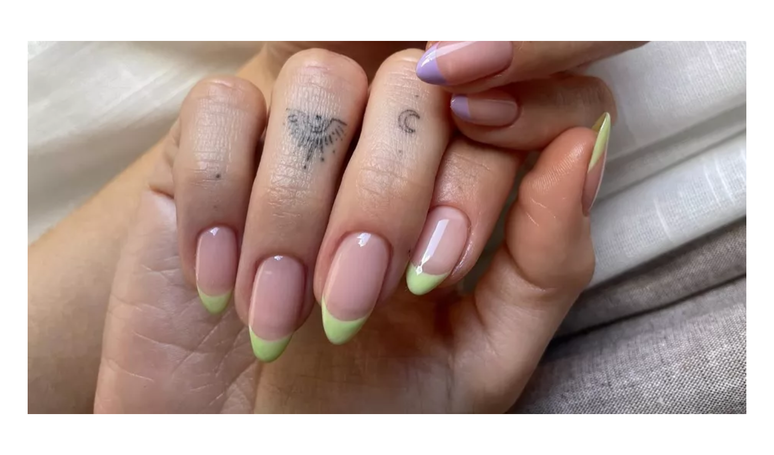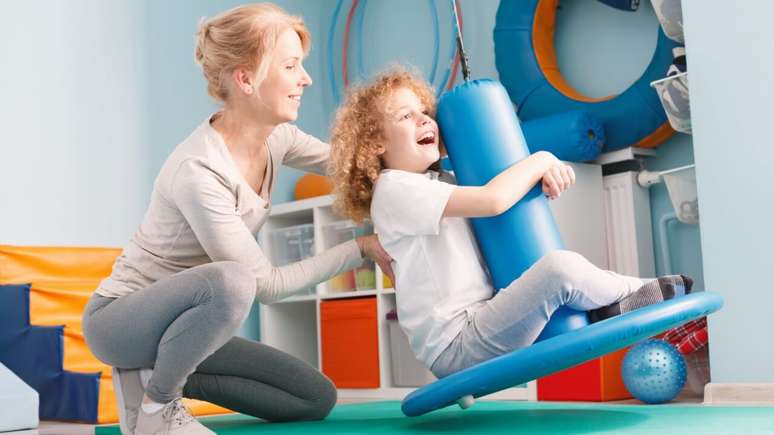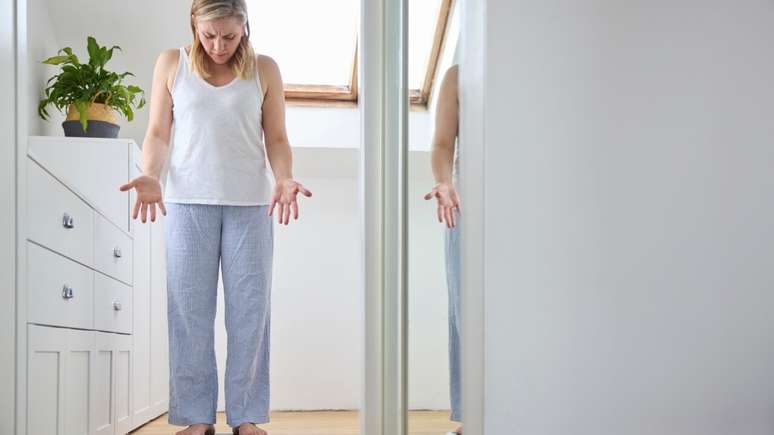The fighter revealed he received the diagnosis at the age of seven
Confined in Big Brother Brazil 2023, from TV Globo, Antonio Carlo Junior, known as Cara de Sapato, told other participants in the reality show that he was diagnosed with Tourette’s syndrome in childhood. The fighter vented on the matter in a conversation with Marvvilla AND Gabriel Santana in the program kitchen.

“I started having tic disorder and such, Tourette syndrome, at the age of seven. I mean, from a very young age. Things I see today of insecurities and fear and everything in my life, today as an adult, I see it comes from my childhood,” he revealed.
Also during the chat, Cara de Sapato insisted on emphasizing the importance of therapy. “Today I realize a little from the experience I’ve had in therapy, because I’ve been in therapy since I was a child, I’ve had a tic since I was a child. I was very hyperactive”.
WHAT IS TOURETTE SYNDROME?
Characterized by motor or vocal tics, Tourette’s syndrome is a neurological condition that primarily affects men, but can also affect women.
“Tourette syndrome usually appears in childhood, and men are more likely than women to develop it. It is often accompanied by ADHD, obsessive-compulsive disorder, and a number of other behavioral, learning, and mood disorders “explains the Dr. Amanda Medeiros Diasan integrative doctor at Clínica Gravital.
The cause of this condition that is part of Cara de Sapato’s life is still unknown, but it tends to involve genetic issues. Also, the psychiatrist Dr. Gessica Martanispecialist in human behavior and mental health, informs that there are already reports of people being diagnosed with this syndrome after suffering a head injury.
“It is important to pay attention to signs that are normally motor tics, which can be as varied as blinking, frowning, head shaking,” warns the psychiatrist.
“The tics should occur in clusters (several times a day), nearly every day, or intermittently over a period of at least three consecutive months,” adds Dr. Amanda.
WHAT ARE THE SYMPTOMS?
In most cases motor tics occur, which are the first symptoms to appear. According to Dr. Jessica Martani, they can be as varied as blinking, frowning, head shaking and usually occur between the ages of four and six.
Vocal tics may also appear, involving spitting, moaning, sobbing, throat clearing, and speaking inappropriate words. “Everyone can be repetitive and difficult to control,” reveals the psychiatrist.
Other symptoms may also manifest, for example, aggression, compulsive behavior, hyperactivity, repeating meaningless words, involuntary movements, anxiety, anger, apprehension, learning disabilities, eyelid tremors, among others, according to the integrative physician.
“The main problems are the difficulty in socializing the child, which can lead to several problems, including shocks in self-esteem, leading to other mental disorders such as anxiety and depression and damage in adult life which can also affect professional life,” he warns. Dr. Jessica.
HOW IS THE DIAGNOSIS MADE?
To diagnose the syndrome it is essential to have a doctor, usually a psychiatrist, who can evaluate and differentiate the manifestations of Tourette’s from other diseases that affect the nervous system.
«The diagnosis is made by the specialist doctor, but it is worth paying attention to the symptoms that can appear daily, for at least a year. Diagnostic imaging tests and medical evaluation are essential to rule out other conditions,” explains Dr. Jessica.
IS THERE A CURE?
Although there is no cure, Tourette syndrome can be controlled. Dr. Jessica Martani emphasizes that treatment should be done with a neurologist and often with the help of a psychiatrist and psychologist.
“Antipsychotic drugs have been shown to be useful in reducing the intensity of tics, when their repetition leads to loss of self-esteem and social acceptance. In some cases of well-localized tics, local applications of botulinum toxin can be used. Activities as meditation and yoga can be interesting for relieving stress. In general, sport can help both because it promotes relaxation and because its practice requires attention”, concludes Dr. Amanda Medeiros Diaz.
Source: Terra
Ben Stock is a lifestyle journalist and author at Gossipify. He writes about topics such as health, wellness, travel, food and home decor. He provides practical advice and inspiration to improve well-being, keeps readers up to date with latest lifestyle news and trends, known for his engaging writing style, in-depth analysis and unique perspectives.








